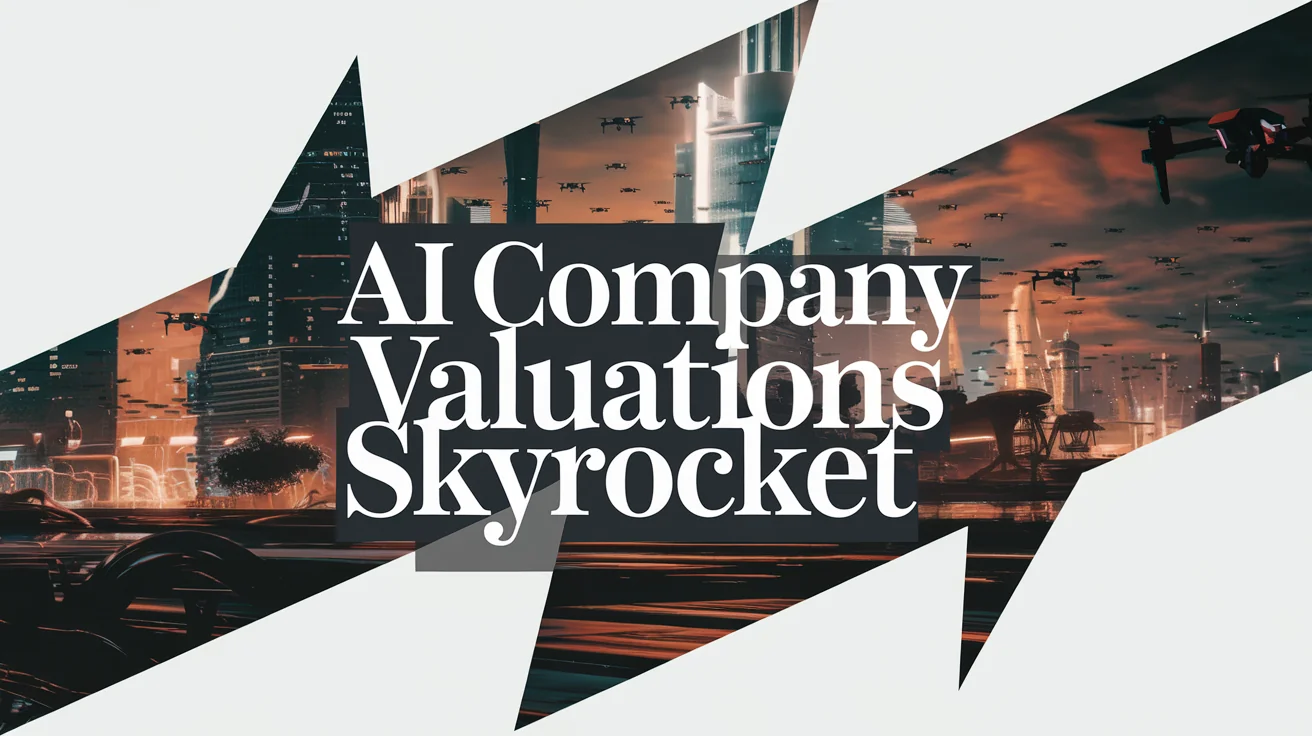AI Company Valuations Skyrocket

In an era defined by rapid advancements in technology and artificial intelligence (AI), we are witnessing unprecedented financial milestones in the sector. Recently, numerous AI companies have achieved startling valuations, emphasizing the extraordinary growth and impact of AI in today’s economy. From Nvidia’s staggering $5 trillion valuation to a consortium of deals worth nearly $600 billion, the financial landscape of AI is as dynamic as it is complex.
Remarkable Valuations and Earnings
Last week marked a significant moment when Nvidia attained a $5 trillion valuation, a mere three months after becoming the first company to reach the $4 trillion mark. Similarly, tech giants Microsoft and Apple also hit valuations of $4 trillion. Meanwhile, Alphabet, Amazon, and Meta showcased their financial prowess with all reporting noticeably high quarterly earnings, with Google achieving its first $100 billion quarter. Though Meta announced mixed results, which some analysts found surprising, this reflects the immense scale at which these companies operate and the astronomical sums involved.
Increasing Investment in AI Infrastructure
In a bid to support their AI ventures, tech giants are revising their capital expenditures upwards significantly. For instance, Alphabet has adjusted its expected capital expenditure for the coming year from $75 billion earlier this year to between $91 and $93 billion. This adjustment signifies an intention to invest heavily in the physical infrastructure essential for AI development, which is a positive indicator of the industry’s future.
OpenAI’s Bold Moves
OpenAI has been actively engaging in substantial deal-making, transitioning to a for-profit model and considering an initial public offering valued at $1 trillion. Its partnerships with Nvidia, Microsoft, and Oracle encompass investments reaching $588 billion, a startling figure that exemplifies the appetite for AI innovation. The company’s recent $38 billion deal with Amazon Web Services further cements its position among leading tech enterprises.
Concerns Over Valuation Sustainability
While the soaring valuations may seem indicative of relentless progress, they also raise questions about the sustainability and potential risks involved in such inflated financial figures. Nvidia’s current market capitalization exceeds the entire annual economic output of Germany, highlighting the absurdity of such valuations. Moreover, the interlinked financial dealings among these companies give rise to fears that a downturn in one could lead to broader economic repercussions.
The Reality of AI Applications
On the ground, the effectiveness and utility of AI remain subjects of scrutiny. Reports across the industry suggest that, despite the substantial investments, AI is yet to prove its worth in practical, high-value applications—often viewed as inadequate outside niche tasks, such as assisting in homework. According to research from MIT, nearly 95% of AI implementations within businesses have failed, underscoring the need for a more rigorous evaluative approach in understanding AI’s role and capabilities.
The Physical Expansion of AI
The physical infrastructure supporting AI, particularly data centers, echoes the financial landscape’s enormity. The Tahoe-Reno Industrial Center epitomizes this growth, hosting hundreds of companies and sprawling across vast areas. Such centers are vital for supporting AI functions and handling the massive data loads that facilitate the technology’s operational capabilities.
Ethical Concerns in Tech Investments
In the larger context of the technology and finance intersection, we also observe questionable initiatives, such as the recent troubling partnership between Trump’s Truth Social and Crypto.com to facilitate betting on election outcomes. This raises ethical considerations about how technology and economic interests intertwine in a rapidly changing socio-political landscape.
As AI companies continue to push boundaries and redefine technological landscapes, it remains imperative to balance innovation with ethical responsibility and economic sustainability. Can the overwhelming financial growth translate to meaningful applications, or are we on the cusp of a tech bubble that needs to be addressed?